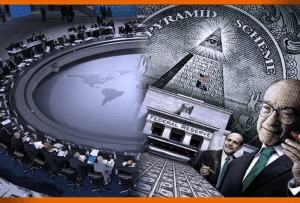Insider News: A Former Federal Reserve Insider Predicts How The Bank Will Behave In The Months Ahead
Mar 16, 2022

This week, all eyes will be on the Federal Reserve, which is likely to increase interest rates for the first time in more than three years.
The financial climate in the United States has altered dramatically in the past year, especially in February, and predictions for how the central bank would cope with the unstable situation have shifted.
Fed Chairman Jerome Powell regularly said in 2021 that higher inflation would be temporary until abandoning that notion in November. He then said that the Federal Reserve would double the pace at which it planned to reduce asset purchases and that it would seek to raise interest rates three times in 2022, beginning with the March Federal Open Market Committee session.
On Wall Street, the number of rate rises expected this year has climbed to six or seven. But, in recent weeks, when Russia's attack on Ukraine inflamed an already-inflationary climate around the globe, there has been less clarity about how the Fed would manage monetary policy for the remainder of the year.
According to Danielle DiMartino Booth, a former adviser at the Federal Reserve Bank of Dallas, the Fed would keep its foot on the tightening gas pedal to contain inflation despite the conflict in Europe.
"I wish I could predict that the Ukraine scenario will cause the Fed to take a bigger step back," Booth commented on Monday. "I believe they'll keep going until something breaks. Except for inflation, nothing is broken at the moment."
Booth predicted that the credit market, not a further fall in assets, would " break " and lead the Federal Reserve to change its tightening position.
Booth, now the CEO and chief strategist at financial research firm Quill Intelligence, noted that political pressure on the Fed is also playing a different role in their approach than in the past, with politicians calling for the Fed to tighten policy rather than keep rates artificially low to stimulate economic activity.
She thinks the central bank is aware that it would ultimately cause a recession and chastised the institution for not acting sooner to tighten.
"The Federal Reserve passed up a chance to begin tightening policy in 2021, which might have helped to curb runaway increases in house prices generated by the Fed," Booth stated. "Now, the Fed is stuck between rising interest rates in the face of a weakening economy and the start of the Russia/Ukraine conflict, which adds to economic uncertainty and inflationary pressures."
"Rather than being able to relax monetary policy in the face of a slowing economy, the Fed is beginning on a tightening campaign," she added.
According to Booth, stagflation (above-trend inflation and below-trend economic growth) looks to be on the horizon. She predicted that GDP growth would be negative in the first quarter and that inflation would "likely" soar beyond 10% in the coming months as a consequence of the Ukraine conflict and its influence on gas and food costs.
According to Booth, the Fed's strategy will concentrate more on decreasing its balance sheet by selling assets it holds or not replacing those that mature rather than raising interest rates.
"I believe they'll get more mileage, more leverage, out of lowering the balance sheet," she said. "Recent speeches from Lorie Logan, who runs the New York Fed's markets desk, and John Williams, who is the president of the New York Fed and a permanent voter on the FOMC...they've indicated that they're going to be extremely aggressive about shrinking the balance sheet than they've been in the past."
The Federal Reserve's balance sheet is now worth $8.9 trillion, more than double what it was before the COVID crisis. This has resulted in more liquidity in the economy, contributing to both the economic recovery and the 40-year-high inflation.
The bank is anticipated to begin lowering its balance sheet later this year, but any changes might come during this week's conference. Economists and investors anticipate a 25 basis point increase in the federal funds rate. Powell has recently stated his desire to do so.




